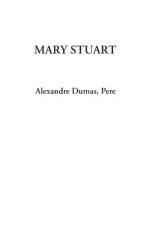The day of the trial, Bothwell had this written challenge placarded:
“Although I am sufficiently cleared of the murder of the king, of which I have been falsely accused, yet, the better to prove my innocence, I am, ready to engage in combat with whomsoever will dare to maintain that I have killed the king.”
The day after, this reply appeared:
“I accept the challenge, provided that you select neutral ground.”
However, judgment had been barely given, when rumours of a marriage between the queen and the Earl of Bothwell were abroad. However strange and however mad this marriage, the relations of the two lovers were so well known that no one doubted but that it was true. But as everyone submitted to Bothwell, either through fear or through ambition, two men only dared to protest beforehand against this union: the one was Lord Herries, and the other James Melville.
Mary was at Stirling when Lord Herries, taking advantage of Bothwell’s momentary absence, threw himself at her feet, imploring her not to lose her honour by marrying her husband’s murderer, which could not fail to convince those who still doubted it that she was his accomplice. But the queen, instead of thanking Herries for this devotion, seemed very much surprised at his boldness, and scornfully signing to him to rise, she coldly replied that her heart was silent as regarded the Earl of Bothwell, and that, if she should ever re-marry, which was not probable, she would neither forget what she owed to her people nor what she owed to herself.
Melville did not allow himself to be discouraged by this experience, and pretended, to have received a letter that one of his friends, Thomas Bishop, had written him from England. He showed this letter to the queen; but at the first lines Mary recognised the style, and above all the friendship of her ambassador, and giving the letter to the Earl of Livingston, who was present, “There is a very singular letter,” said she. “Read it. It is quite in Melvine’s manner.”
Livingston glanced through the letter, but had scarcely read the half of it when he took Melville by the hand, and drawing him into the embrasure of a window,
“My dear Melville,” said he, “you were certainly mad when you just now imparted this letter to the queen: as soon as the Earl of Bothwell gets wind of it, and that will not be long, he will have you assassinated. You have behaved like an honest man, it is true; but at court it is better to behave as a clever man. Go away, then, as quickly as possible; it is I who recommend it.”
Melville did not require to be told twice, and stayed away for a week. Livingston was not mistaken: scarcely had Bothwell returned to the queen than he knew all that had passed. He burst out into curses against Melville, and sought for him everywhere; but he could not find him.




